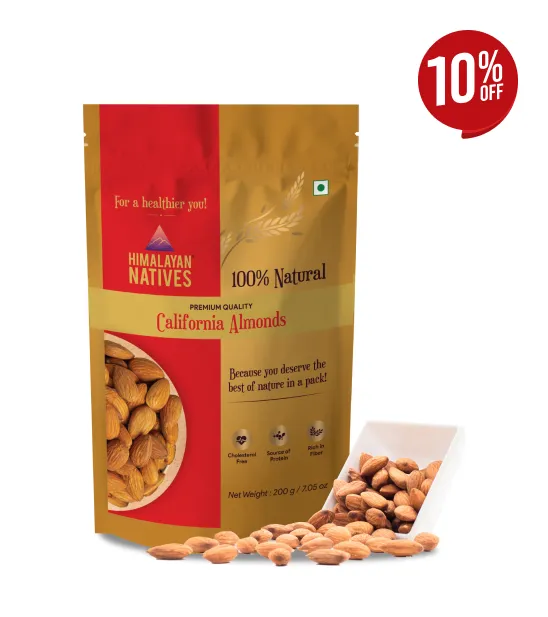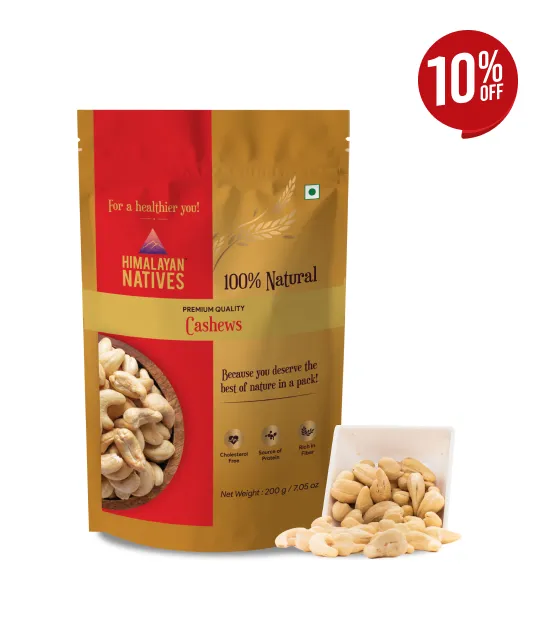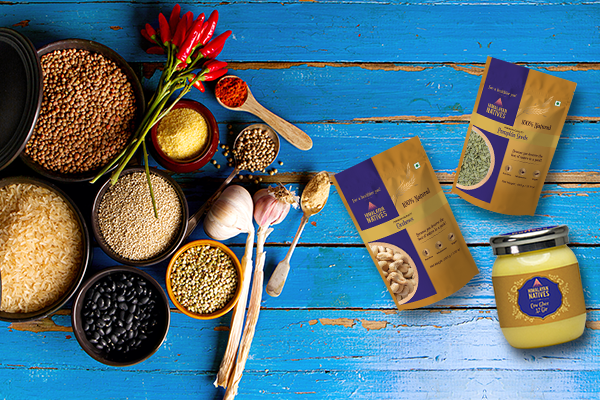
Diabetes is a chronic condition that affects millions of people worldwide, and India has the dubious distinction of being home to the second-largest number of diabetics globally.
Managing diabetes effectively involves making careful dietary choices to control blood sugar levels and prevent complications.
While the term "dry fruits" often conjures images of sugary delights like raisins and dates, it also includes nutrient-rich nuts and seeds that can be extremely beneficial for diabetics.
In this blog, we will explore the benefits of dry fruits, why they are great for diabetics, which ones are particularly beneficial, and the numerous health advantages they offer.
Understanding Diabetes and Dietary Restrictions

For individuals with diabetes, managing blood sugar levels is a daily challenge. This involves knowing what to eat and what to avoid. Foods with a high glycemic index (GI) can cause rapid spikes in blood sugar levels and are generally not recommended for diabetics.
These include refined sugars, white bread, and sugary beverages. On the other hand, foods with a low glycemic index release glucose slowly, which helps in maintaining stable blood sugar levels. Such foods include whole grains, vegetables, and certain dry fruits.
Himalayan Natives offer a range of nutritious options that align perfectly with these dietary needs, providing high-quality, low-GI foods that support better blood sugar management.
Why Dry Fruits are Great for Diabetics
The benefits of dry fruits, especially nuts and seeds, are significant for diabetics for several reasons. First, they have a low glycemic index, meaning they don't cause rapid spikes in blood sugar levels.
Second, they are packed with essential nutrients like fiber, healthy fats, vitamins, and minerals that help in overall health management. Fiber, in particular, is crucial as it slows down the absorption of sugar, helping to keep blood glucose levels steady.
Additionally, the healthy fats found in nuts can improve heart health, a significant concern for diabetics who are at higher risk of cardiovascular diseases.
Dry Fruits That Diabetics Can Eat
Not all dry fruits are created equal when it comes to managing diabetes. Here are some of the best dry fruits that diabetics can include in their diet:
1. Almonds
Almonds are low in carbs but high in protein, fiber, and healthy fats. They help in regulating blood sugar levels and improve insulin sensitivity.

2. Walnuts
Walnuts are rich in omega-3 fatty acids, which are beneficial for heart health. They also contain a good amount of fiber, which helps in maintaining stable blood sugar levels.
3. Pistachios
These nuts have a low glycemic index and are rich in protein and healthy fats. They can help in lowering bad cholesterol and improving heart health.
4. Cashews
While slightly higher in carbs compared to other nuts, cashews still have a low glycemic index and are packed with nutrients like magnesium and potassium.

5. Hazelnuts
These nuts are high in fiber and healthy fats and are known to help improve heart health and blood sugar control.
Benefits of Dry Fruits for Diabetics
1. Blood Sugar Control
The fiber in dry fruits helps slow down the digestion and absorption of sugar, leading to more stable blood sugar levels. This is crucial for diabetics who need to avoid blood sugar spikes.
2. Heart Health
Many dry fruits are rich in omega-3 fatty acids and antioxidants, which are beneficial for heart health. This is particularly important for diabetics who have a higher risk of heart diseases.
3. Weight Management
Dry fruits can help in weight management, a critical aspect of diabetes management. The fiber and protein content in dry fruits promote satiety, reducing the tendency to overeat.
4. Nutrient Density
Dry fruits are packed with essential vitamins and minerals like magnesium, potassium, and vitamin E, which are beneficial for overall health and can help manage complications associated with diabetes.
5. Antioxidant Properties
The antioxidants in dry fruits help in fighting oxidative stress, which is often elevated in diabetics. This can help in reducing inflammation and preventing complications.
6. Improved Digestion
The high fiber content in dry fruits aids in digestion and helps in maintaining a healthy gut. This is beneficial for diabetics who often face digestive issues.
7. Energy Boost
Dry fruits provide a quick and healthy energy boost, making them a great snack option for diabetics. They help in maintaining energy levels without causing significant spikes in blood sugar.
Conclusion
Incorporating dry fruits into a diabetic diet can offer numerous health benefits, from better blood sugar control to improved heart health and weight management. However, it is essential to consume them in moderation and choose the right types to avoid any adverse effects.
By including nutrient-rich dry fruits like almonds, walnuts, and flaxseeds in their daily diet, diabetics can manage their condition more effectively and enjoy a healthier, more balanced life.
Remember, alongside dietary choices, regular exercise and monitoring blood sugar levels are crucial components of managing diabetes successfully. The benefits of dry fruits extend beyond diabetes management, promoting overall health and well-being. Incorporating the best food for diabetes control into your diet is essential, and dry fruits can play a significant role in this. However, diabetics should consult a doctor before making any significant changes to their diet.
For more exciting and super easy health tips, check out our Facebook and Instagram, we share those daily.
Frequently Asked Questions (FAQs):
1. How should dry fruits be incorporated into a diabetic diet?
Answer: Dry fruits can be added to breakfast bowls, salads, yogurt, or consumed as a snack. It's best to opt for unsweetened and unroasted varieties to maximize their health benefits.
2. Are there any dry fruits diabetics should avoid?
Answer: Diabetics should be cautious with dry fruits that have added sugars or are candied, such as sweetened cranberries or sugar-coated almonds. It's best to stick to natural, unsweetened varieties.
3. What is the recommended portion size of dry fruits for diabetics?
Answer: A small handful (about 1 ounce or 28 grams) of mixed nuts and seeds is generally recommended. It's important to consult with a healthcare provider or nutritionist to determine the appropriate portion size based on individual health needs.
4. Are all organic foods healthier than non-organic alternatives?
Answer: Not necessarily. While organic foods can reduce exposure to pesticides, choosing a variety of fruits and vegetables, whether organic or not, is more important than fixating solely on the organic label.
5. Can I achieve a healthy lifestyle without exercising regularly?
Answer: Regular exercise is beneficial for overall health, but a healthy diet is a crucial component. While you can improve your health with proper nutrition alone, combining it with regular physical activity provides more comprehensive well-being benefits.
 HELPFUL0 people found it helpful
HELPFUL0 people found it helpful
Related Blogs
Subscribe to Our Blogs
and never miss on the latest update!

















